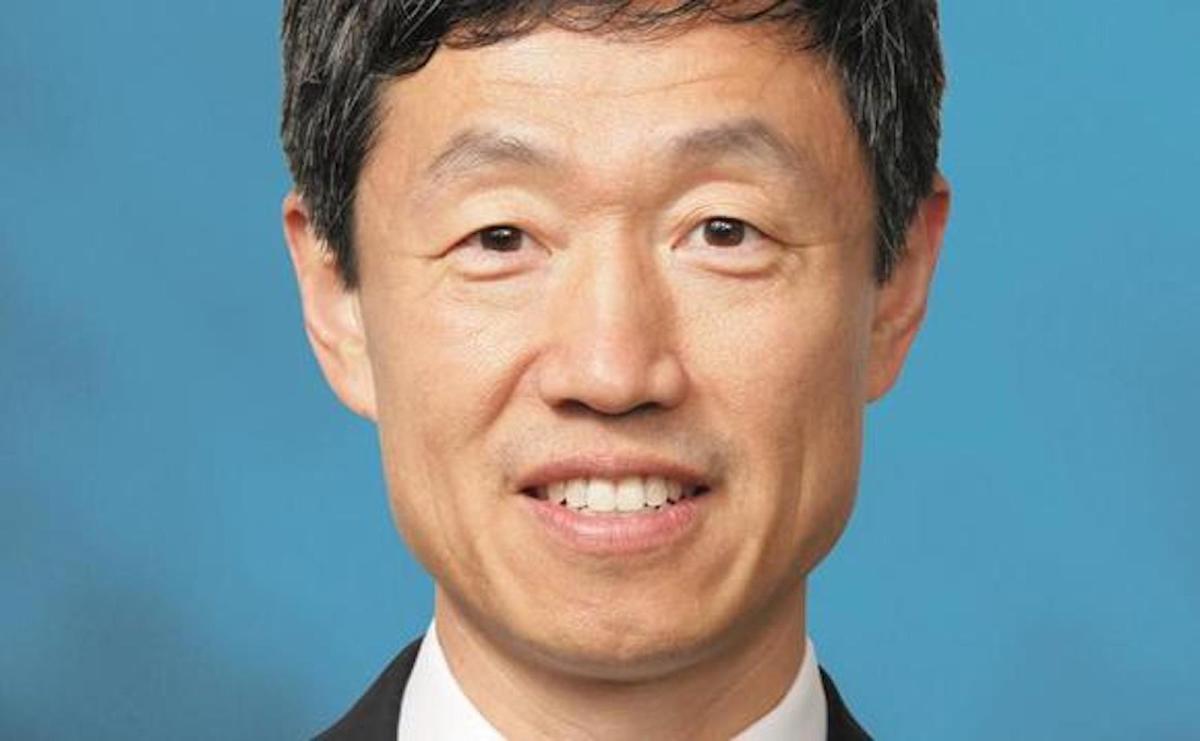Even for finance’s most risk-tolerant players – private equity funds (PEFs) – 2020 is proving a grim year.
But in this bear market, Weijian Shan, global chairman and chief executive officer of PAG, Asia’s largest private equity firm, is a raging bull.
PEFs everywhere are scrambling to shore up investments hit by the pandemic, especially companies dependent on discretionary spending.
Despite an estimated US$1.4 trillion in available capital for the global PE industry, acquisitions have declined dramatically during the plague. So, too, has fundraising as fund managers seek to reassure investors there is a silver lining to the Covid-19 storm.
Defying the devastation, PAG is busy doing deals. So far this year, it has closed a major insurance deal in China, announced a major acquisition in India and sold a portfolio company in Korea.
Shan, 66, told Asia Times he expects late 2020 to be equally robust. In addition to another potential deal in India, he says PAG may have another in Australia, and “several in China for sure.”
Shan’s bullishness is underwritten by his diversified, Asia-centric investment strategy that has lured global capital into new PAG funds this year.
His approach is also fortified by a hard-knocks background at the center of one of former Chinese leader Mao Zedong’s most disastrous social experiments.
Shan’s childhood in Beijing ended abruptly as the Cultural Revolution stormed across China. The then lanky 15-year-old was conscripted in 1968 and sent to the Gobi Desert in Inner Mongolia to increase the nation’s agricultural output.
As he relates in his memoir, Out of the Gobi: My Story of China and America, Shan spent more than six grueling years doing hard labor farming potatoes, digging ditches, clearing reeds and planting seeds in the Gobi’s stony soil.
That personal investment in sweat equity, amid brutal winters and blazing summers, was all for nothing.
“It is estimated that during the Cultural Revolution, approximately 16 million educated youth, representing about 10% of China’s urban population, were sent to the countryside, particularly to remote border areas and poor regions,” Shan related.
“Whereas most of the rest of the world was undergoing a process of urbanization, China was uniquely doing the opposite, forcing millions of young urban dwellers to migrate to poor rural areas.”
Perhaps it was the punishing physical labor he endured in the Gobi that is responsible for his life-long commitment to exercise and fitness. Shan says he runs five miles a day, and skis and scuba dives.
But for Shan, who has been married for 40 years and has two children, it was the backbreaking Gobi Desert projects, with no results and no benefits, that made him an unapologetic capitalist.
Amid the misery of those early years, Shan hungered for education. He read any papers and books he could get his hands on and secretly listened to Voice of America.
In 1974, China’s higher education, essentially dormant for six years, reopened. Though he had never attended high school, Shan returned to Beijing the following year and entered the Beijing Institute of Foreign Trade. After graduating, he joined the Institute’s English Department.
In 1980, Shan came to America as a visiting scholar in an exchange program with the San Francisco-based Asia Foundation.
Shan went on to earn an MA and PhD in Economics from the University of California, Berkeley and later taught at the University of Pennsylvania’s elite Wharton School.
He later moved from academia to the private sector when he became a managing director at US investment bank JP Morgan. In 1997, Shan’s private equity career began as a managing partner at Newbridge Capital.
Newbridge Capital, now part of a private equity firm, was a pioneer. The PEF was created in 1994 to make direct investments in private and public companies in East Asia.
The firm’s sponsors were US-based investment firms Texas Pacific Group (TPG) and Richard C Blum and Associates, now known as Blum Capital Partners.
Dan Carroll, managing partner at Brooklands Capital, a fundraising advisory firm for PE, was a partner at Newbridge in the 1990s and interviewed Shan for a job at the firm.
“Shan had no experience in private equity, but he was blazingly smart and knew China,” Carroll said. “We decided to bet on the person – that he would enable us to navigate the country and find deals.”
It was a good bet. Shan dived in to stabilize three Newbridge-owned Chinese firms struggling during the 1997-98 Asian financial crisis.
But it was Shan’s work on leading negotiations for two Asian bank acquisitions for which Newbridge is best known.
Shan’s in-depth account of a South Korean bank deal – an epic of the PE industry – is the subject of his second book, Money Games: The Inside Story of How American Dealmakers Saved Korea’s Most Iconic Bank (to be published in October by John Wiley & Sons).
That deal, which succeeded despite multiple forces aligned against it, established Shan’s reputation in the industry.
David Bonderman, chairman and co-founder of TPG calls Shan, “very smart, very creative and entirely relentless.” However, he also has a softer side. “He has a great sense of humor,” Bonderman said.
In 2010, Shan left Newbridge – by then, renamed TPG Asia – planning to establish his own PEF. He later joined forces with the Pacific Alliance Group (PAG), a platform focused on public debt and private market strategies. The merged entity was branded what is known today as PAG.
As PAG’s chairman and CEO, Shan launched an initial $2.5 billion Asia-focused PEF in 2011-12 to invest largely in consumer-driven companies. This was followed by a second fund of $3.6 billion in 2015 and a third valued at $6 billion in 2018.
PAG’s roots date back more than two decades. Its real estate business was founded in 1997 by JP Toppino, an American who specialized in property investments in Japan.
There is also a so-called “absolute return business”, founded in 2002 by Chris Gradel, a British citizen, who has been investing in Asia for the past 20 years. Gradel’s part of the business includes tailored debt solutions for corporate borrowers and public market strategies to achieve positive returns in all economic cycles.
Along with Shan, who mainly runs PE buyout and growth strategies, each of the three founders remains at the head of their respective divisions.
Today, PAG is widely recognized as an Asian powerhouse for alternative investments with offices in Singapore, Sydney, Tokyo, Mumbai, and Shanghai and a headquarters in Hong Kong.
The firm manages capital on behalf of more than 150 leading institutional investors from Europe, North America, the Middle East and Asia, including in Australia and New Zealand.
Assets under management have grown steadily and currently stand at $40 billion as global investors deploy capital to Asian economies, which have by and large taken softer hits from Covid-19 than their Western counterparts.
Shan’s strategy has been to ride on the back of Asia’s growing middle-class population and new consumers eager to purchase discretionary products and services.
PAG’s 30-company buyout and growth portfolio is invested in consumer, healthcare, business products and services, technology and media, and financial services.
In the midst of the global pandemic, rising unemployment and bankrupted companies, these types of businesses are keeping private equity executives up at night. But not Shan.
Part of the reason for his optimism is Beijing’s comparatively swift and decisive response to the pandemic. Unlike the flailing seen in the US and Europe, China has effectively and quickly contained Covid-19.
Immediate and complete lockdowns, massive testing and persistent contact tracing have been aggressively promoted. The impact has been dramatic. “Life is back to normal,” Shan claims. “China has basically eradicated Covid.”
Economic data support China’s recovery story. While US GDP was down 9% year on year in the second-quarter (Q2), China was up 3.2%. China’s consumption remains slightly below last year’s level, but retail sales improved in Q2 over Q1 and in July over June.
“Clearly China is recovering quite well,” Shan said. “Domestically, people travel freely and hold in person meetings without concern.”
Private equity is benefitting from the high valuations in public markets.
“The valuation of public markets has reached dizzying highs – how is that attractive for a value-oriented investor?” he said. “Private markets are always inefficient and therefore more conducive to attractive valuation and outperformance,” he said.
Shan has positioned PAG’s alternative asset businesses to succeed even in a weak global economy. As such, PAG has largely steered clear of hospitality businesses, namely airlines, hotels, entertainment and restaurants.
“Some of the damage,” in those sectors, he warns, “will be long term, if not permanent.” PAG’s portfolio companies, he says, are quality businesses, which cater to private and domestic consumption with conservative leverage.
Shan and his team look for three conditions in their investment candidates: firms that are differentiated from their competition; are in sectors which raise significant barriers to entry; and those that can scale up comfortably. “These are businesses that can outperform,” Shan said.
Controlling stakes are another PAG essential, allowing Shan’s team to helm business’s long-term directions and make changes based on economic cycles and competitive forces. It also enables smooth exits.
“If you have control,” he says, “you can exit at any time you feel opportune. A passive investor doesn’t have that luxury.”
At the same time, his preference is to transfer control upon selling a PAC portfolio company: “In general, we prefer trade sales to deliver control to the buyer, which allows us to fully exit and to maximize value, as control commands a premium.”
In general, PEFs are cross-collateralized by investments in different industries so that problems in one sector do not endanger the entire fund. To this, PAG adds the advantage of cross-border diversification.
For example, the firm owns the Craveable franchise (fast food) and Cheesecake Shops (also a franchise) in Australia and, until it agreed to exit the investment at the end of August, Young Toys in South Korea.
Other investments are located largely where PAG has its offices, making it heavily Asia-centric.
Even so, it currently has three portfolio companies in the US – property services company Cushman & Wakefield, in partnership with TPG; Joyson Safety Systems, a manufacturer of vehicular safety products; and Lexmark International, a manufacturer of laser printers and imaging products.
Food Union, a dairy products company, is a European investment. What unites them is that they all have significant operations in Asia.
PAG’s other investment vehicles are also geographically diverse. The real estate business, with about $10 billion in assets under management, has significant investments in Japan.
The absolute return business is active in all major Asian markets, including Japan, China, Australia, India and Korea. And, looking ahead, he says, “Vietnam is emerging as a major PE destination.”
While Shan will not discuss PAG’s specific returns, he claims the value of PAG’s portfolio is up for the year. Private equity firms are known for keeping their books close to their chests.
But the recent sale of Tencent Music Entertainment was reportedly at a double-digit multiple of PAG’s original investment, made from its first fund in 2013. PAG also reportedly made a 500% return on its investment in Japan’s Universal Studios, which it entered in 2013 and exited in 2016, according to an industry source familiar with the deal.
This year, PAG also closed its fourth absolute return fund with $1.5 billion in commitments, the largest loan fund the firm has ever raised. PAG’s real estate strategy closed its ninth fund, its biggest ever, at $2.75 billion
Shan’s explanation for the growing interest in Asian alternative investments is simple. “There is a glut of capital in the world, but few high-return opportunities,” he said. “Limited partners invest where they can get the best returns.”
He expects opportunities in China will continue to grow as the private sector expands.
A free-market advocate, he opposes tariffs and other trade constraints that raise barriers between the US and China. Earlier this year, in an op-ed in Foreign Affairs, he said US tariffs on China had “backfired.”
“The tariffs were expected to work by forcing Chinese exporters to lower their prices to compete,” he wrote. “However, China’s export prices to the United States have not really changed since the trade war began.”
And he has a warning for American policymakers. “The United States’ leadership in technology will slip if it shuts itself out of the biggest and one of the fastest-growing markets in the world.”
Shan says many US multinational companies operating in Asia are putting their investment decisions and business plans on hold as they await the US presidential election outcome in November.
That, however, has not slowed PAG’s plans. The firm’s focus on domestic private consumption businesses has helped it avoid the impact of this uncertainty.
Whichever way America’s political winds blow, tensions between the US and China may offer PAG a competitive edge, reckons Carroll.
If investors have concerns about investing in Chinese companies or partnering with Chinese businesses on cross-border buyouts, they are more likely to turn to a firm like PAG, he says.
“Investors,” Carroll says, “will want the best-in-class in navigating risk.”
Owen Blicksilver is a veteran public relations professional based in New York.












